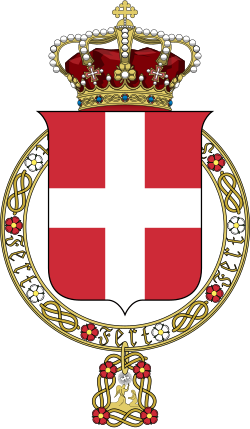Minghetti II government | |
|---|---|
| 14th Cabinet of Italy | |
 | |
| Date formed | 10 July 1873 |
| Date dissolved | 25 March 1876 |
| People and organisations | |
| Head of state | Victor Emmanuel II |
| Head of government | Marco Minghetti |
| Total no. of members | 9 |
| Member party | Historical Right |
| History | |
| Predecessor | Lanza Cabinet |
| Successor | Depretis I Cabinet |
The Minghetti II government of Italy held office from 10 July 1873 until 25 March 1876, a total of 989 days, or 2 year, 8 months and 15 days. [1]
